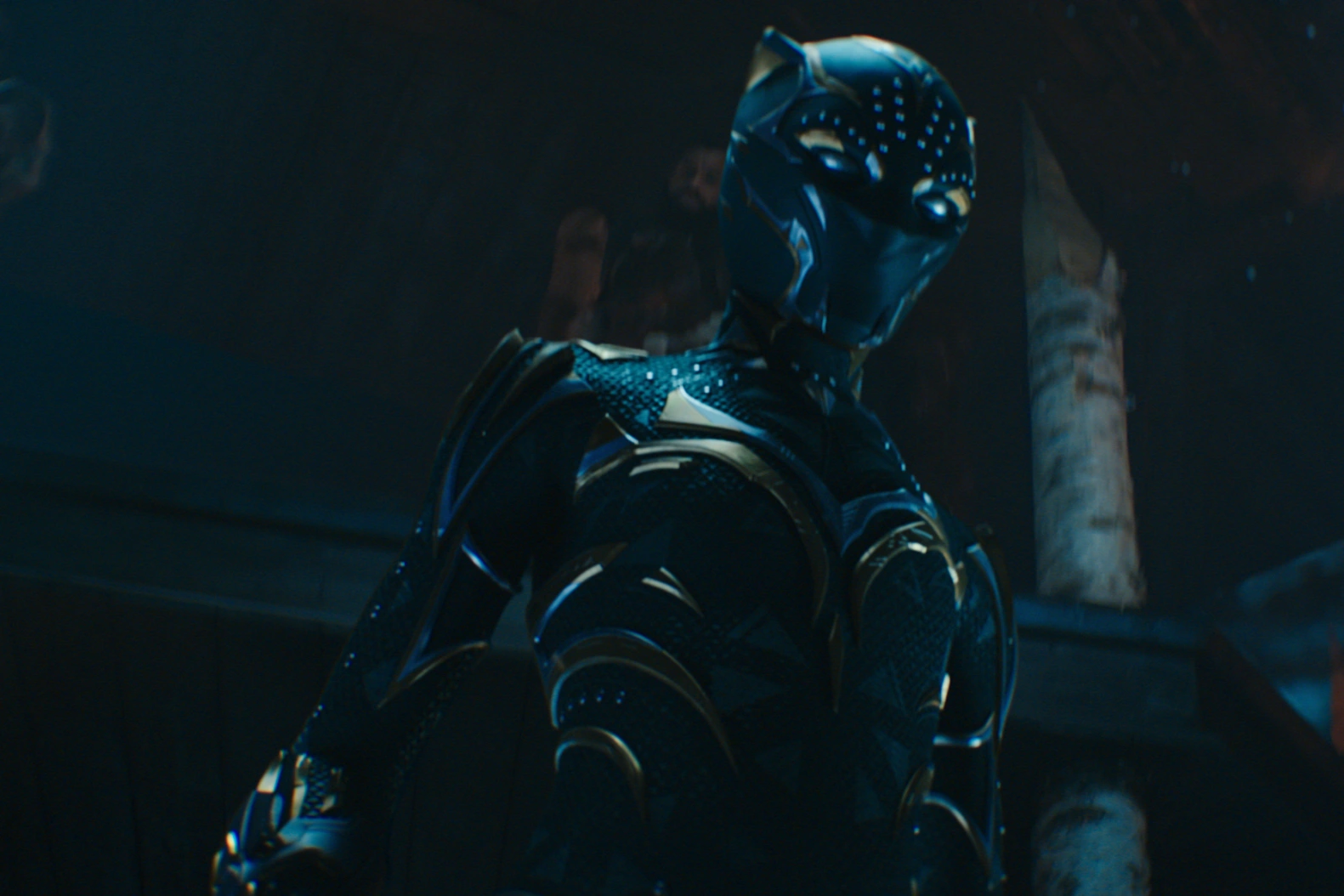Rihanna is the biggest bold-face name but the entire project is musically rich and carefully curated.

A scene from Marvel Studios' Black Panther: Wakanda Forever. COURTESY OF MARVEL STUDIOS
The magic of the original soundtrack album has been a bit lost in recent years — too often, they’re anchored by a few new tracks primed for the top of the charts and some pertinent oldies, then padded out by snippets of score and dialogue. But the soundtrack to Black Panther: Wakanda Forever, the second film in the Black Panther series and latest installment in the Marvel Cinematic Universe, breaks that trend with verve and gusto in a way befitting a movie about the world’s most tech-savvy nation.
Credit composer Ludwig Göransson, who returned to Wakanda after composing the score for Black Panther’s first installment. He went on a worldwide mission to make the album feel as of the movie as its score (which he also composed), researching musical traditions from Nigeria as well as the Mayan culture, and recording artists from all over the world at studios that included Lagos’ Ogidi Studios and London’s Abbey Road. The result is invigorating and cohesive, making Black Panther: Wakanda Forever a soundtrack album that works even for those listeners who are unaware of any twists the movie (which hits theaters Thursday night) might take.
The album kicks off with Rihanna, who summons strength in a time of mourning on the glittering ballad “Lift Me Up.” Resolve sits at that song’s core, and that feeling powers the album all the way through its pensive ending, the Mayan poem “Mi Pueblo,” intoned by Guadalupe de Jesús Chan Poot over crashing waves and cawing birds.
Wakanda Forever boasts 19 tracks and lengthy guest list, which includes boldfaced names like the UK grime superstar Stormzy, the velvet-voiced Nigerian crooner CKay, and the surrealistic MC Future (who also appeared on the first Black Panther tie-in album). But other artists stand out: the Mexican pop singer Foudeqush, who adds a wondrous, breathy vocal to the gently banging Göransson composition “Con La Brisa” and calle x vida’s traditional Mexican cut “No Digas Mi Nombre”; Nigerian singer Bloody Civilian, whose icy-cool performance acts as a counter to the insistent beat of “Wake Up”; and South African producer DBN Gogo, who helms two dancefloor-ready cuts, the slow-burning “Love & Loyalty (Believe)” and ecstatic “Jele,” that bring the house-music splinter genre amapiano into the mix.
Then there’s “They Want It, But No,” a compact, yet grand slice of braggadocio from the married couple Tobe and Fat Nwigwe. Its compounded urgency is enough to conjure a mini-movie unfolding alongside it — which is yet another sign that this soundtrack has elevated its form.
From Rolling Stone US.
From the Raj sisters to Pop empress Sunidhi Chauhan, here’s a rundown of all the…
Hip-hop stars like Karan Aujla and Hanumankind made global leaps, the likes of Parvaaz, Sijya…
After 25 years of shaping global electronic music, the progressive trance pioneers brought their ‘Bigger…
Complicated family relationships (Sentimental Value, On Becoming a Guinea Fowl), black comedies (No Other Choice),…
From daylight horror flicks to Bollywood comedy essentials, beat all the performative cinephile allegations with…
A healthy mix of shounen (Gachiakutta), horror (The Summer Hikaru Died) and returning favorites (My…